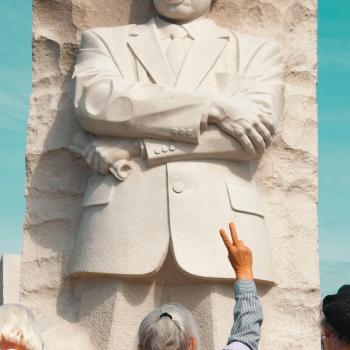Our dehumanization of the Negro then is indivisible from our dehumanization of ourselves: the loss of our own identity is the price we pay for our annulment of his.
James Baldwin, “Many Thousands Gone”
Every man in the chapel hoped that when his hour came he, too, would be eulogized, which is to say forgiven, and that all his lapses, greeds, errors, and strayings from the truth would be invested with coherence and looked upon with charity.
James Baldwin, “Notes of a Native Son”
Love your neighbor as yourself. And love your enemies too.
Jesus Christ, somewhere at some time in the long lost past
In his brilliant essay “Notes of a Native Son,” James Baldwin does some amazing magic. He begins with a seething description of the hatred he feels toward his dead father. This hatred and bitterness he also feels, in general, toward White America as well, which he believes has dehumanized him and other Black people. But wait!! Because then he somehow ends with a benediction of forgiveness and even fond nostalgia, wishing to speak one more time with his dead father; one might even say, he exhibits love. It’s rather remarkable, this spiritual sleight-of-hand. To be honest, Baldwin’s essay includes some of the greatest prose ever written by one of the great prose stylists of the American language.
In fact, Baldwin’s essay presents us with a metaphor for life, because it asks a crucial question: how can we love our neighbors, let alone our enemies? And how can we love ourselves? Because when we hate someone, we end up hating ourselves, in a way.
By now, some readers are wondering what any of this has to do with the titular Presidential Debates of 2020, which begin this evening. Perhaps it is an indication of just how far we have fallen off whatever pedestal existed in the past, that such themes as dehumanization and hatred, or love and forgiveness, are regarded as irrelevant to the debate process. In this first part of my spiritual analysis of the 2020 Debates, I wish to bring these themes front and center. As the sign above puts it: “Any Functioning Adult” would seem to know these things, but I wonder how it will look later tonight?
What are Presidential Debates About, Anyway–if not to reveal the character of the participants? A spiritual approach to the debates would be most interested in the character of those debating the issues. But somehow we have lost our way, as a culture–and nowadays, character seems irrelevant.
Beyond the character issue, perhaps the debates should be understood as a kind of educational event. If so, we might consider how the two participants, in their answers to complex questions, inspire each of us to become better human beings. In the Jesuit tradition of education set out in the Ratio Studiorum (1599), it states: “The educator has the ultimate objective of stimulating the student to relate his activity to his final end: knowledge and love of God and salvation of his soul.” That sets the bar pretty high for people like me. But what about the presidential debates? Ratio as a term refers to a system or methodology of study that leads logically to God. Does either candidate seem to do that, more than the other candidate? As Alan Noble suggests, sticking to the truth is one clear indicator of an approach leading to God, I would think. Thus, consistent lying might be a spiritual dealbreaker, at least for some voters.
Related to the Ratio of the Jesuits is the Christian humanism that arose around the same time. This model of education was based primarily on the so-called “Vir Bonus” or “good man” theory of Quintillius, who insisted that the good orator is a good human being. That makes some sense in the old days, but might seem strange or naïve today. But I wonder how quickly our culture has turned around on this, especially those on the Right. In the 1990s, they were all over Pres. Clinton and his moral failures. Now, conservatives and Trump’s base are willing to ignore such questions of “character” or moral failure—as long as he appoints the correct judges.
Finally, humanistic education also might remind us of Cicero’s notion of the ideal orator as a sort of culture hero in De Oratore, argued that the ethos or character of the speaker is revealed in one’s speech. There, teachers would not just display wide learning, but they must also live a virtuous and godly life–and thereby, spurn their students to do likewise. Hate is not something we want in our leaders.
This brings me back to the Baldwin quote, about how dehumanizing someone ends up dehumanizing the speaker. Listen carefully to how the debaters talk about other humans tonight, including each other. Observe how they listen to each other–or refuse to listen. Watch carefully the non-verbal cues and postures: numbers vary, but experts suggest that a large majority of communication is through body language.
Or let’s cut to the chase: does one candidate seem to love their opponent more than the other? Should we support the more loving candidate? At the very least: we should desire a “functioning adult.”
Such questions might begin our search for a spiritual approach to what may be the most rancorous debates of our lifetime. But character is revealed in crisis: so watch and learn.
And beware! Thou shalt not dehumanize thine opponents, either. For when thou doest– thous dost dehumanize thyself, as well!
Photo by Laura Seaman on Unsplash












